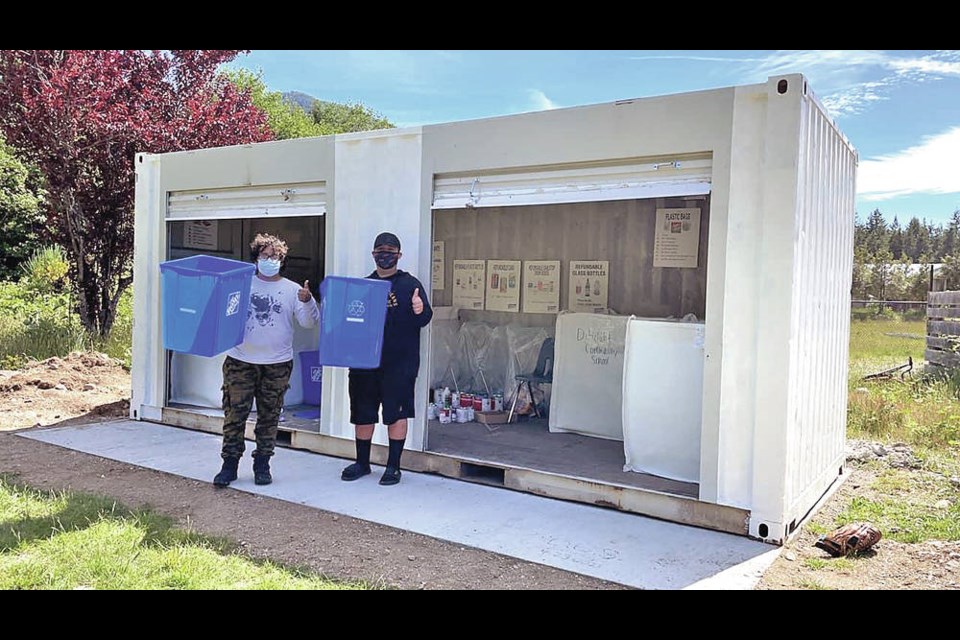Ditidaht First Nation high school students have opened a recycling depot on the grounds of their school to serve the 200-member community on southwest Vancouver Island.
Every Monday and Wednesday from 3:15 p.m. to 5:15 p.m., the students are on hand to accept recyclable materials brought in by residents and to answer any questions. They also visit the homes of elders to personally collect materials for the depot.
Prior to the depot’s opening at the beginning of June, community members had to take recyclables elsewhere themselves, dropping them off in Duncan, for example.
“I like the idea of our school opening up a depot for recycling,” said Maria Edgar, a Grade 11 student. “It may be hard to get used to but with the whole community contributing to recycling and working towards a clean environment, it will be worth it.”
The depot is housed in a shipping container on the grounds of Ditidaht Community School.
Edgar says the project was important because people from all around the world come to see the community, which borders Nitinaht Lake and marine waters, as well.
“Nitinaht Lake is a very well-known place,” she said. “We as a nation should be representing our land as something we love dearly.”
The recycling program was the brainchild of high school teacher Kaila Pidwerbeski, who is originally from Kelowna but has been working at the school for two years.
She’s been committed to recycling since she was a child and jumped at the chance to promote a depot.
Pidwerbeski’s pool of students is small — just 14 in grades 8 to 12. They all pitched in to set up the program starting last fall, with help from the non-profit Synergy Foundation of Victoria and Indigenous Services Canada, she said.
About half a dozen students are now volunteering at the depot. They are expected to earn summer wages through the First Nation, said Pidwerbeski, who has been at the depot on recycling days.
“The process of planning a recycling depot and then making it a reality has been an incredible journey,” she said. “As students learned about over-consumption on a mass scale, throw-away culture and the detrimental effects of such on the environment, I could literally see the concern growing in their eyes.”
It is important that students are not left in a state of doom and gloom, she said. “Arming students with a consciousness of their ability to make positive change is tremendously powerful and probably the best chance we have at truly turning things around for the better.”
Tina Joseph, a Ditidaht Nation member, called the recycling initiative “a great way to lead by example.”
“Our Ditidaht ancestors, and our neighbours, took care of the land before us, and this is a modern example of Ditidaht people continuing that work today.”
Elected Chief Brian Tate also praised the initiative. “It is exciting to see the school integrating the importance of sorting waste products and teaching the kids about the biodegradable differences and the use of recyclables of plastic, metal, and paper products.”
Nitinaht public works carried out excavation, poured cement for the depot’s platform and provided labour at no cost, a news release on the project said.
A First Nation public works staffer delivers the recyclables to the Cowichan Valley Regional District’s Meade Creek recycling centre. That effort is funded by Indigenous Services but may be taken over by Recycle B.C., Pidwerbeski said.
Synergy Foundation has received funding from Vancity Credit Union to support other remote Indigenous communities on Vancouver Island create similar depots and programs, said Jen Fraser, Synergy’s manager of project development and communications.
“Synergy Foundation encourages any Indigenous communities on the Island that do not have access to a recycling program and would like to set something up for their own community to reach out directly,” she said.



